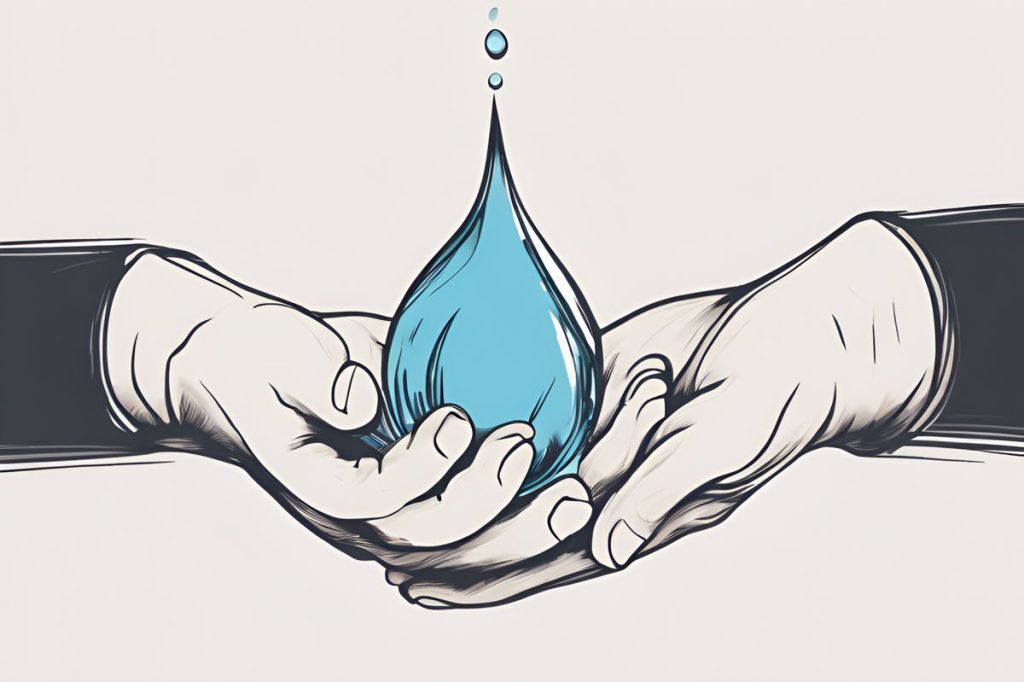The new water carbon tax, set at one cent per cubic meter of water used, aims to promote eco-friendly water usage and align with global sustainability goals. It forms part of a wider strategy to implement green taxes and reduce the environmental impact of water consumption, highlighting the urgent need for conservation efforts and awareness about water scarcity.
What is the new water carbon tax?
The new water carbon tax is a levy of one cent per cubic meter (1,000 liters) of water used, introduced to encourage environmentally conscious water consumption, align with global initiatives, and reduce the environmental impact of water usage. This tax is part of a broader strategy to implement green taxes and promote sustainability.
A New Era in Water Management
In an effort to align with global environmental initiatives, consumers are soon expected to see a new levy on water usage. This comes in the form of a carbon tax set at one cent per cubic meter, or 1,000 liters of water used. This initiative is part of a broader strategy to incorporate green taxes and reflects a growing awareness of the environmental impact of water consumption.
The concept of taxing water usage is not merely a financial measure but a call to consciousness about the scarcity of water as a vital resource and the environmental cost associated with its use. While no specific timeline has been provided for the imposition of this tax, the groundwork has been laid out, and steps are being taken to educate the public about the implications of their water use.
The Environmental Cost of Desalination
Cyprus, like many regions with limited natural water supplies, relies heavily on desalination plants to meet its water needs. However, the energy required to operate these facilities predominantly comes from fossil fuels. This is not only costly but also contributes to the island’s carbon footprint and aggravates the global issue of greenhouse gas emissions.
The urgent need for a shift towards renewable energy sources is clear. The government has been urged to mandate that private desalination plant operators reduce their reliance on conventional energy. By switching to, or augmenting with, renewable sources, a significant reduction in environmental harm could be achieved. This approach is consistent with the larger vision outlined in the Cyprus Recovery and Resilience Plan, which was set in motion three years prior.
International World Water Day: A Call for Cooperation
Highlighted during the international World Water Day, this year’s theme, “Water for Prosperity and Peace,” emphasizes the importance of transboundary water cooperation. With 60 percent of the world’s freshwater flows originating from transboundary waters, yet only a fraction of countries sharing these resources having cooperative agreements, there is a vast potential for enhancing peace and sustainable development through collaborative water management.
In Cyprus, a unique opportunity presents itself. The island is divided, with the ceasefire line separating two major communities. A bi-communal agreement on the provision of drinking water across this line could serve as a foundational act of cooperation and trust-building between the communities.
Preparing for Potential Drought Conditions
Looking forward, the mild winter of 2023-2024 has raised concerns about the possibility of drought. The water board is proactively taking measures to increase storage capacity, ensuring continued supply to the public. The current water inflow rates and reservoir capacities are being closely monitored, showing a decrease from the previous years. These figures are critical for strategizing the water supply management and addressing potential shortages before they become critical issues.
Understanding the delicate balance of our ecosystem, the introduction of a water carbon tax, and the promotion of sustainable practices is a proactive step toward preserving our environment for future generations. As we adapt to these changes, each of us holds a part in safeguarding our most precious resource: water.
What is the new water carbon tax?
The new water carbon tax is a levy of one cent per cubic meter (1,000 liters) of water used, introduced to encourage environmentally conscious water consumption, align with global initiatives, and reduce the environmental impact of water usage. This tax is part of a broader strategy to implement green taxes and promote sustainability.
Why is the water carbon tax being implemented?
The water carbon tax is being implemented to promote eco-friendly water usage, align with global sustainability goals, and reduce the environmental impact of water consumption. It is part of a larger strategy to implement green taxes and increase awareness about water scarcity and conservation efforts.
How will the water carbon tax affect consumers?
Consumers will see a small additional cost on their water usage, with a levy of one cent per cubic meter of water used. This is intended to encourage more mindful water consumption and contribute to environmental sustainability efforts. The tax aims to prompt individuals and businesses to consider their water usage and its impact on the environment.
When will the water carbon tax be enforced?
While a specific timeline for the enforcement of the water carbon tax has not been provided, efforts are underway to educate the public about the implications of water consumption and the importance of conservation. The tax is part of a long-term strategy to promote sustainable water practices and align with global environmental goals.

